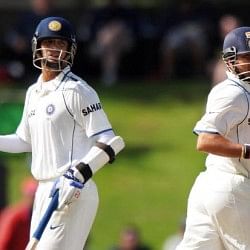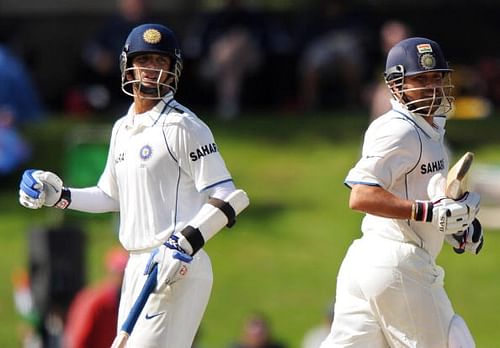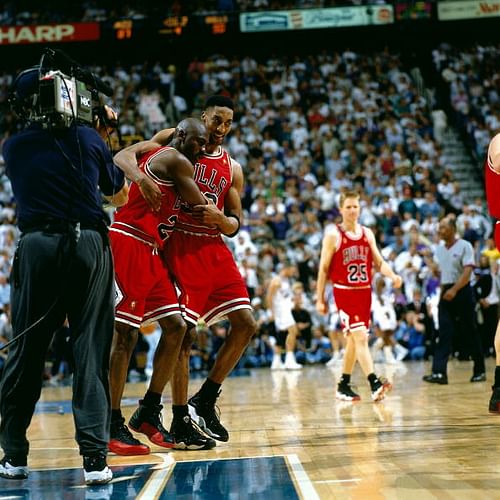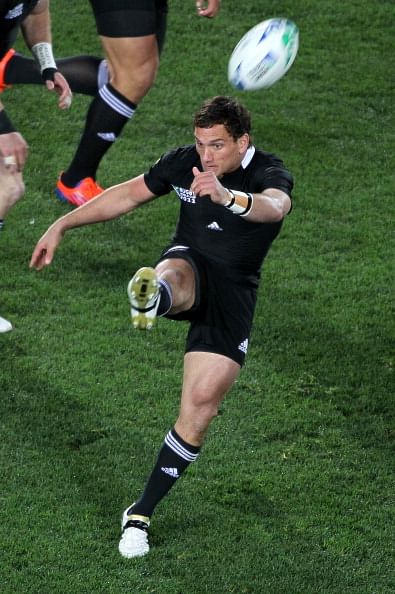
Sporting heroes and the rest - The side-kicks, the bench-warmers and the discards

A famous sports broadcaster once said, “If you want to be a hero, you have to take hero shots.” His quasi-motivational statement did throw a not-so-distinct light on a rather superficial, yet much bedizened aspect of modern-day sports and its headliners. The concept of the alpha dog; the franchise star who share a pantheon that would put even the Greek gods like Apollo and Zeus to shame, is the most perpetuated phenomenon in today’s digitized and media dominated sporting world.
Today’s sporting doctrines are about the peerless athlete; insuperably talented and undeniably spirited players, who have pretty much defined the sport and have become its sole identity. So much so, that the playbook has no longer excerpts from the founders, but rather is an exemplification of the styles and mannerisms deployed by such transcendent superstars. The flick shot is now defined by the way Sachin played it, the forehand by the way Nadal hits it.
Yes, the very purpose of sports has always been to showcase and exhibit the extremities and physical limits that humans can set for themselves and then go on to challenge and defy the same. It is a direct descendant from Darwin’s theory of survival in which the one who survives is most certainly the fittest of the lot. It is a competition and it is always about winning. It is this emotion that drives a Kobe Bryant to jump an extra inch every time he rises up for a clutch-game winner, the same that gets Tiger Woods all cold and azoic, standing over a possible 20-feet putt.
It is histrionics like these that lead them into a surreal and hypnagogic state of eulogization and panegyrization. But, somehow within the glorified accolades and the plaudits being haphazardly assigned, the polarized luminaries leave behind a trail of many players who were not necessarily the smartest or the best of the whole lot, but in their own special way had a significant contribution in making it worthwhile.
The players who are famously known as the sidekicks: role players, bench-warmers and the discards. Now, yes I am aware of the fact that it is a much generalized congregation. But, the point is that distinctions amongst them have never been a priority for the savants. They stand as David, wronged by the crowd rather than Goliath himself.
These players’ contributions might not be startling figures on the stat sheet, and they may not have the most refreshing telegenic looks, but they are the primal ingredients that transforms the seemingly immense potential and promise of the stars into glorified success stories. Michael Jordan wouldn’t have made all the highlight plays in the open court, had Scottie Pippen not been pushing the ball and leading the break. Walsh would not have scalped many of his wickets, had Ambrose not kept up the pressure at the other end. On a more holistic level, the likes of Batman and Robin, Holmes and Watson, or even our very own Munna and Circuit would have never succeeded unless they co-existed.

So, why are these accomplishments diminished in the face of the almost despotic desire of the savants and the fans to patronize the sovereigns and cardinals of the game? The stars themselves have often gone out of their way to state and re-instate the value of their partners, knowing and believing that the side-kicks’ role goes far beyond what gets reflected. They know and understand the dynamics involved and realize that a team can’t be quantified by an optimistic addition of the combined talents on board, and that sometimes the biggest struggles aren’t on the pitch or the grounds, but are housed within the minds and the hearts of the individuals involved. Such emotional and egoistic congregations require people to make sacrifices beyond their opinion of themselves and their perception of their talents.
However, such sacrifices need to be made. Sherlock wouldn’t have been so successful had Watson not questioned and probed at every assumption and deduction he made. Munna wouldn’t have been funny had Circuit not stood by and re-emphasized every single whim he nurtured. The same goes for Sancho Panza and Tonto and may others.
These role-players have led by example, choosing to give up the limelight and be eager to make sacrifices. It is this assurance that is most vital to the alpha stars. When you are tired, beaten up and lacking confidence, there is nothing more comforting than the luxury of looking over your shoulder, to find somebody willing to take the next hit. The feeling of someone stepping up to take care of matters, give you a breather and a new ray of hope amidst the daunting struggles is maybe the singular most godly emotion in the whole of sports. The feeling that somebody is there to cover your back in case you fail, somebody who is going to run with you, fight with you, put his body on the line and believe that you will do the same for him; the belief that when the moment comes he can trust you to return the favour, the belief that the glory and the fall is what matters and not who is chosen to wear the crown.
 And there is no greater story, than when such destitute players get a rare sporting moment to showcase their abilities and stand up and be the saviour when the heroes have fallen. The most celebrated of such stories being the redemption of the All Blacks in the 2011 Rugby World Cup. With a team boasting of the World’s best fly half in Dan Carter, and the tournament being held on home soil, it was assumed that they would romp to an easy win. Disaster struck, when Carter was sidelined due to injury, and the replacement Colin Slade was injured in the Final against France. The responsibility of carrying the nation’s hopes fell on the enigmatic and much maligned Aaron Cruden. Cruden had been so disappointed on failing to get a berth in the squad that he had quit on his chances and was vacationing on a fishing trip. Who would have thought that the much maligned and quiescently discarded player would then singularly carry the hopes of the best Rugby team in the world. The believers had their eyes closed and hands clasped in prayers, the savants shook their heads.
And there is no greater story, than when such destitute players get a rare sporting moment to showcase their abilities and stand up and be the saviour when the heroes have fallen. The most celebrated of such stories being the redemption of the All Blacks in the 2011 Rugby World Cup. With a team boasting of the World’s best fly half in Dan Carter, and the tournament being held on home soil, it was assumed that they would romp to an easy win. Disaster struck, when Carter was sidelined due to injury, and the replacement Colin Slade was injured in the Final against France. The responsibility of carrying the nation’s hopes fell on the enigmatic and much maligned Aaron Cruden. Cruden had been so disappointed on failing to get a berth in the squad that he had quit on his chances and was vacationing on a fishing trip. Who would have thought that the much maligned and quiescently discarded player would then singularly carry the hopes of the best Rugby team in the world. The believers had their eyes closed and hands clasped in prayers, the savants shook their heads.
A bench-warmer then came to the fore and literally kicked all such doubts away, starring and scoring the winning penalty. Carter’s legacy may have been christened with a World Cup, but the sporting moment belonged to Cruden and his insuperable belief and ability. His sacrifices were mistaken as his shortcomings and his inability. But, when the moment arrived, he stood up tall. At that moment, Cruden was what Carter had always been; the alpha dog, the saviour, the superstar.
And there lies the tragedy of sacrifices. Their implications aren’t ever direct and apparent. The beads of sweat, the challenges of suppressing one’s instincts and desires, to mesh in and make a more holistic impact, is what separates the greats from prodigies. Pippen could shoot the ball as well as any other basketball player, could lead as well as inspire confidence. But, he knew that as a motivational leader, and as a side-kick to the great Michael Jordan, he had the chance to script and start a dynasty. To see the team’s second-best player and one of the league’s biggest stars, make sacrifices and choose to do the dirty work over the glory deeds, pretty much set the tone for the rest of the team. Rodman suddenly was more rigorous in his play, and the likes of Steve Kerr were more than happy following suit.
Remember, these players were still NBA players, and the best in the world at what they did. In a tiny corner of their heart, they also desired to be stars; to have the ball in the dying seconds, to feel and sense a crowd of 10,000 people pulsating rhythmically to every single dribble and move they make. Every performer needs an audience, and it is but natural for them to crave for the same. But, teams are like human pyramids, and without individuals ready to give up their bodies, nobody would ever make it to the top. It is for the better men to accept and understand.
Yes, they give up on many things: money, fame, a legacy and maybe much else. But they go into the shadows knowing they were true and honest to their teammates, believing that they did everything they could to make the most of the combined talents on their roster. That’s the reason why the people involved will always respect them, and swear by them; the reason why after the flu-game Michael walked back into the locker room hunched over Pippen rather than palavering with the media; reasons best known to the few who understand the difference between winning and playing; the standing point that distinguishes the honoured ones from the vilified.